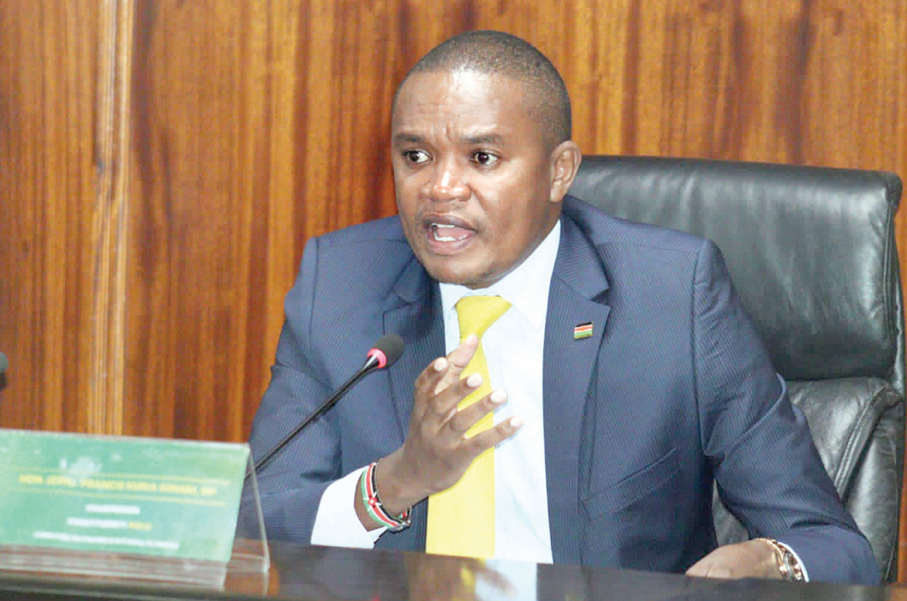A Bill that seeks to open doors for wealthy individuals to own shares in companies investing in the country has been published.
The Public Procurement and Asset Disposal (Amendment) Bill, 2024 gives leeway to Kenyans to be shareholders in infrastructure mega-projects being undertaken by the government.
The Amendment Bill seeks to revise the Public Procurement and Asset Disposal Act to prescribe the threshold of procurement to be awarded to a local firm. If passed, the Bill, which will be tabled for First Reading this week, provides for locals to own at least 30 per cent failure to which an investor will not be permitted to do business in the country.
The legislative proposal states that for a foreign firm to win a contract exceeding Sh1 billion, it must partner with a local firm and allow the latter a third of the contract value.
“A foreign firm shall be eligible for procurement of contracts of more than one billion shillings where the foreign firm has entered into a joint venture procurement with a local firm for not less than thirty percent of the value of the procurement,” states the Bill sponsored by Chairman of the National Assembly Finance and National Planning Committee, Kimani Kuria (Molo).
Investment promotion
Kuria argues that the proposed law is meant to promote local businesses which have suffered under the hands of their foreign counterparts. He is proposing that all contracts under Sh1 billion be reserved for local entities.
Treasury Cabinet Secretary John Mbadi has also published the Business Laws (Amendment) Bill, 2024, which seeks to consolidate proposals to amend among other laws, the Investment Promotion Act. The Bill proposes to the Act to be in line with the new provisions for Registration of Foreign Direct Investments and Accreditation of facilitators for foreign investors. The proposals seek to provide for the accreditation of persons who facilitate foreign direct investors by the Kenya Investment Authority.
“This will provide for setting standards for investment promotion and facilitation, provide traceability for protection of investors to avoid conning of foreign investors,” the CS explained.
The proposed law also seeks to provide for the registration of foreign investments by the Kenya Investment Authority and issuing of investment certificates that guarantees them with various benefits in terms of the permits issued and fast tracking of incentives and exemptions.
Centralised facility
“Registration will also assist in collection of data to guide promotional efforts and offer after-care services for the growth and sustainability of the investments,” added the CS.
The Bill also seeks to prohibit the transfer of an investment certificate to avoid misuse of the benefits and registration for speculation purposes.
The bill further seeks to provide for a centralised facility, one-start-one-go-centre through collaboration between the Kenya Investment Authority and other public institutions for ease of doing business. Other proposed changes include the introduction of a new section to provide for collaboration with different ministries, departments, agencies and counties to guide investors on the investor entry point, strengthen the journey to enhance positive investor facilitation and experience.
The government is currently undertaking key infrastructural projects, including the controversial deal by the Adani Group.
In a country where politicians are known for arm-twisting foreign companies for monetary favours, there are concerns that the potential for abuse is real.
A few years ago, Nigerian businessman, Aliko Dangote’s attempt to invest in the country flopped after it emerged that some politicians demanded shares in his company before he could even set up a base in Kenya.
In 2017, Dangote registered two companies in Kenya planning to produce cement in Nairobi and Mombasa. The companies where Dangote was to own 90 per cent, with 10 per cent owned by local shareholders. The investor however revealed that mega corruption in the country had dissuaded him from pursuing his plan to invest. Reports in 2017 indicated that Ethiopia had emerged as the most profitable market for Dangote Cement selling 1.7 million tonnes.




















